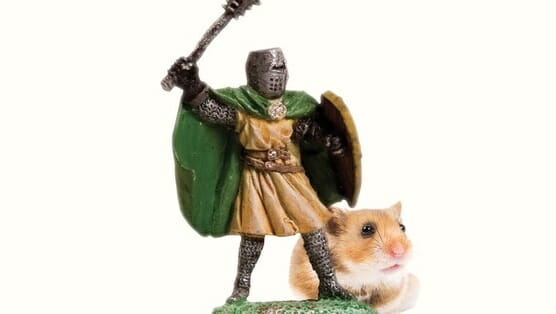Baldur’s Gate II by Matt Bell

There are several moments in the game Baldur’s Gate II where you have to make a choice. These are all, by definition, “Bioware choices,” and what I mean by that is that they are black and white choices that seem to have very clear outcomes. One is bad, the other is good, and you are making an arbitrary choice at the outset about what kind of person you want to be in the constraints of the game’s fiction. These choices proliferate, and they mark every encounter in the game because you know that they’re going to be coming on down the pipeline. You begin to anticipate them because they set the parameters of the story that you’re creating, and by the end your understanding of the broad motions of that story is so interweaved with the microchoices you made along the way that they’re inseparable.
Matt Bell’s Baldur’s Gate II, the latest Boss Fight book, dwells on decision. As is the strategy of most of Boss Fight’s offerings, the book is really about the author and how the author finds themselves reflected within the game. While this definitely isn’t my preferred way of talking or writing about games, it certainly is a strategy, and it is one that has sometimes been successful in their previous offerings.
The decisions that Bell is writing about are varied and take place at many different times in his life. His decision to re-enter his childhood excitement around Dungeons & Dragons is explained multiple times. His decision to co-write a novel in a Wizards of the Coast gameworld is neatly unpacked in several places, and his following choice to spend the advance for that novel on classes with Gordon Lish takes a prime spotlight for much of the book.
In the game, you make decisions and you live with them and they become the tapestry of life. As Bell so accurately points out, their modularity does not really allow for much reflection. On the complete opposite end of the spectrum, Bell’s book cannot help but continually scratch and worry at the decisions he has made, returning to them over and over again.
The core of the book is not a reflection on the game Baldur’s Gate II, or at least it isn’t a coherent reflection. Anyone who has played the game can intuit every point Bell makes about the game itself, and there’s much more summary of dialogue and setpiece than there is any actual reading of those elements. So, to be clear, if you’re looking for a meditation on the game, I would (sadly) say to try to find that elsewhere.
What we have in Baldur’s Gate II is the story of someone who is intensely ashamed with fantasy itself. Bell writes over and over again about how the things he associates with childhood are a source of confusion and disavowal for him. At the same time, he returns to the joy he felt playing Gold Box classics or reading through Dungeons & Dragons manuals and you can tell that there’s genuine love there. There’s an oscillation of confession and exuberance that Bell certainly delivers on, but to what end?
I think it all comes down to Gordon Lish. In the middle of the book, Bell writes about traveling to fiction writing workshops with the hyperfamous Lish. He writes about the commanding attitudes and dismissals that Lish hands out, and Bell lumps it all under the trait of “charisma.” Despite what Lish is saying, and how brutal Lish can apparently be, Bell can’t help but respect him and admit to loving him, explaining that for the first time he really understood what it means to be taught.
It’s distressing to read someone clearly outline someone who is being a bully and then proclaim how great that bullying was to their life. It genuinely bothers me to see one more self-proclaimed writer of literary fiction propping up a legend by explaining how valuable emotional abuse is as a critical mode of engagement and education.